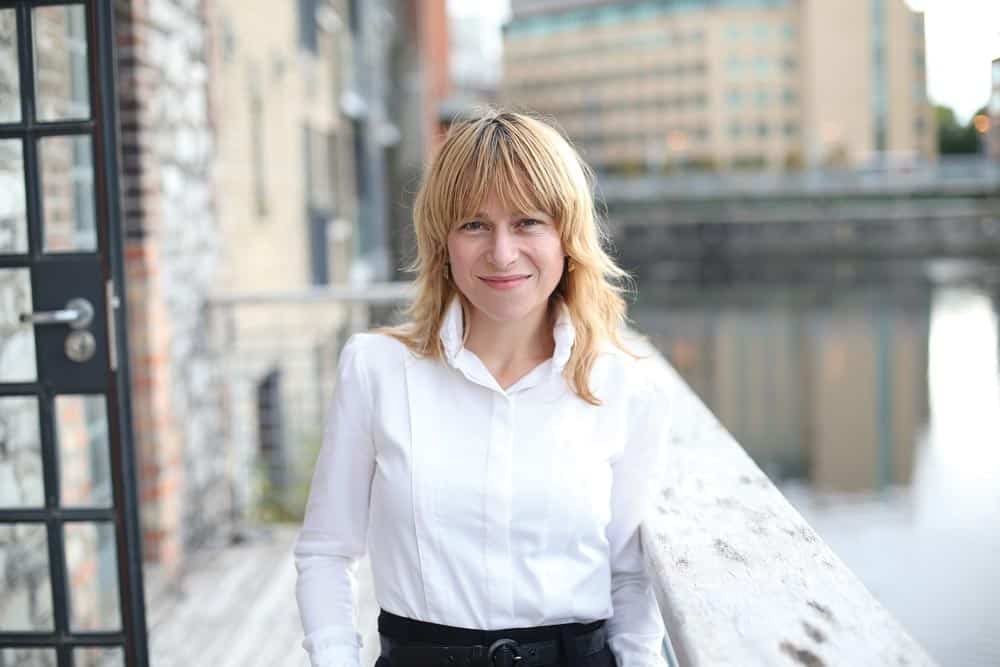Niamh Bushnell, CEO, TechIreland
In the next CEO Q&A, Niamh Bushnell, CEO of TechIreland, talks tracking the progress of up-and-coming Irish businesses and encouraging more funding for women in business.
Q. What are your main priorities and goals in your role? Primarily to fulfil our mission, which is to track data on innovation in Ireland in a meaningful way that helps people and companies to discover and connect with Irish innovation. We track Irish companies who are mostly, but not exclusively, in the technology space. We gather data on employees, funding and product development. That is the day-to-day work we undertake that helps us to deliver on our wider goals. At a more holistic level, however, our priority it to use this data in a meaningful way – to create insight and produce content about Irish innovation that tells a compelling story. Q. What are your biggest challenges as CEO? I think almost all CEOs face the challenge of relinquishing control and realising that it’s not productive or feasible to have a hand in every aspect of the day-to-day running of the organisation. You have to recognise the value of the talent you have on your team, and let people deliver to their capabilities. That frees you up to spend more time on vision and strategy. It’s always tempting to get more heavily involved in the detail but it’s better to trust your team and let them know that you are always there as a fallback if they need you. Q. How do you keep your team/staff motivated? In short – communication. We have a number of team members who work remotely so ensuring we have open and regular communication channels is key. Most of our team is based in Dublin but we’ve one person in Galway, and two in India! Being on the same page as a team really helps with motivation and productivity. It’s about sharing feedback – not just on work related topics, but also socially. Our team works because we are pretty close on both a personal and professional level and we are comfortable with each other. On a practical level we make sure that everyone based in Ireland attends a team meeting here at Huckletree at least one full day every month. We work hard that day, but afterwards get some dinner and drinks and just have some downtime together. Q. What are the challenges facing the industry going forward? Because we’re focused on data, completeness, accuracy and timeliness of data are all at the core of what we do. So, it’s always going to be a challenge to ensure that our data hits all of these markers. We’re trying to develop processes that work like well-oiled machines. But people are also an important part of the mix so things aren’t always as black and white as you would expect them to be. In addition, technology and data are fluid and always changing but we’re not so focused on ‘news’. We are much more concerned with gathering data that tells a deeper story over time about a company, an area of Irish technology, a depth of innovation that we may have as a country in things like AI or FinTech or HealthTech or IoT (internet of things). TechIreland’s raison d’être is to give our audience/users a complete picture – whether they’re investors, or media or talent considering opportunities in the tech industry in Ireland. Q. What new trends are emerging in your industry? Big data, as a general trend, is massive. Everyone from government bodies, to private organisations, to event management companies and everything in between, are now applying data to their work to see where value is added and where it is not, and to see where they can address costs, etc. The challenge for companies is to turn the data into insight and stories that make sense and that engage people, both for themselves and other stakeholders. Sometimes we might make the mistake of overwhelming our users with too much data and all the permutations it can take. But what I find is that everyone is really looking for the ‘and therefore…’ nugget – something with meaning that they can act upon. Q. As an employer are you finding any skills gaps in the market? Yes, and it’s an interesting one. People across the board seem to have devalued the importance of writing. Perhaps it’s due to the prevalence of social media and text-speak etc. but I find that not enough people can actually write and therefore communicate in a succinct, compelling and straightforward fashion. Q. How did your strategy develop in the context of the banking crisis and economic crisis? All of these tumultuous changes in our economic landscape have accelerated the need and demand for data. People are trying to make sense of the general disruption taking place around us both economically and politically. They are using data to calm the noise that is all around and to make sense of the digital transformation that is ongoing. Data has become integral to this, which is ultimately a good thing, but it’s only one piece of the puzzle. Once equipped with the data you must then think, “What does this say?” – “What’s the context?” and reach your ‘and therefore…’ verdict. Q. How do you define success and what drives you to succeed? In the simplest way – doing a job that you love to the best of your ability whilst recognising that work definitely isn’t everything. Q. What’s the best advice you’ve been given, or would give, in business? Over the years I’ve been given lots of good advice and have learned from each and every piece. When I started out in my Commissioner (Dublin Commissioner for Startups) role I received a piece of advice that guided me then that continues to guide me now as the CEO of a not-for-profit that is striving to make a difference, and that advice was: “Don’t do anything that others can or should be doing, look to fill in the gaps where things aren’t being done but need to be…” With this advice I felt like I was given a clear mandate and also a licence to do great things and it has focused our attention. Q. What have been your highlights in business over the past year? It would have to be the launch of our book, Innovation Nation – which is currently flying off the shelves! We had to order another reprint. The idea for the book came about when we could see that people in their thousands were downloading our digital reports – so we figured, why not present them as a beautifully-designed, visual resource? And it turns out people still love books! Q. What’s next for your company? On International Women’s Day we launched a year-long campaign called the €100m Campaign. Our goal is to see Irish female company founders grow the level of funding they raised in 2017 from €79 million to more than €100 million in 2018. We are really little more than observers of these great women in business, but we feel that by tracking and promoting them and their funding successes we can create more awareness around female funding, and reach our €100 million goal. Q. What opportunities or plans for growth do you see in 2018? Now that we have solid baseline data and we have good processes around gathering and updating it what we need is to make our live database self service. Today, users can view all of our data for free, but they can’t download it and do their own analysis on it. Q. Where do you want your business/brand to be this time next year? By this time next year we want to be known as the de facto place to discover and connect with innovation in Ireland. We have made huge inroads already in this regard but we want to solidify and grow our reputation both at home and internationally.
Our goal is to see Irish female company founders grow the level of funding they raised in 2017 from €79 million to more than €100 million in 2018.
Niamh Bushnell is the Founder and CEO of TechIreland and one of the speakers at this year’s it@cork Tech Summit 2018 to be held at the City Hall, Cork.
Tech Ireland is a not-for-profit established in Dublin in January 2017 that maps and tracks all product innovation in Ireland and is on a mission to tell the story of Irish innovation to the world.





